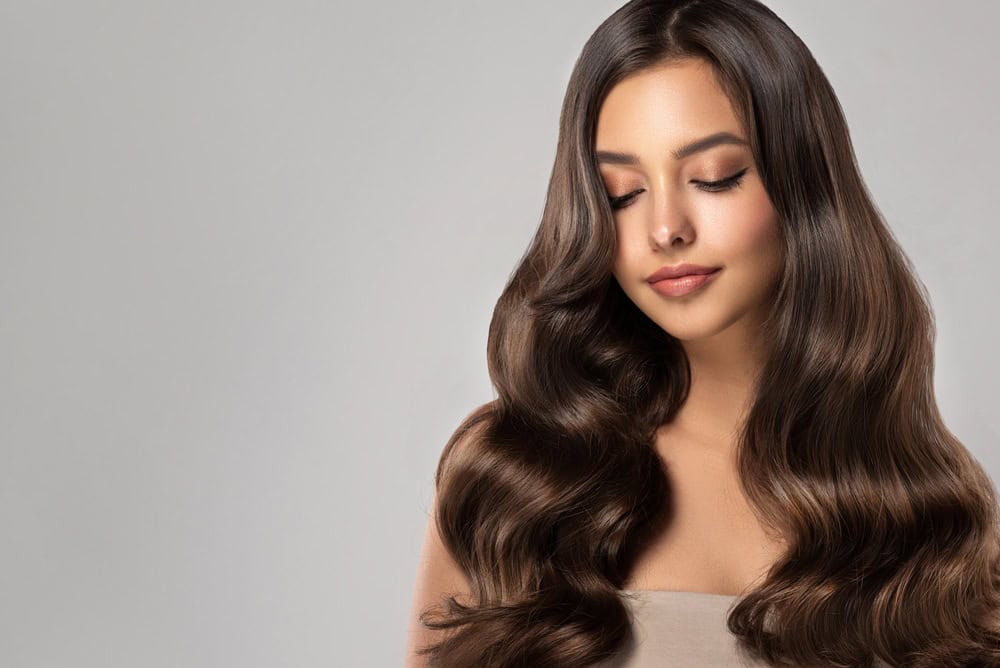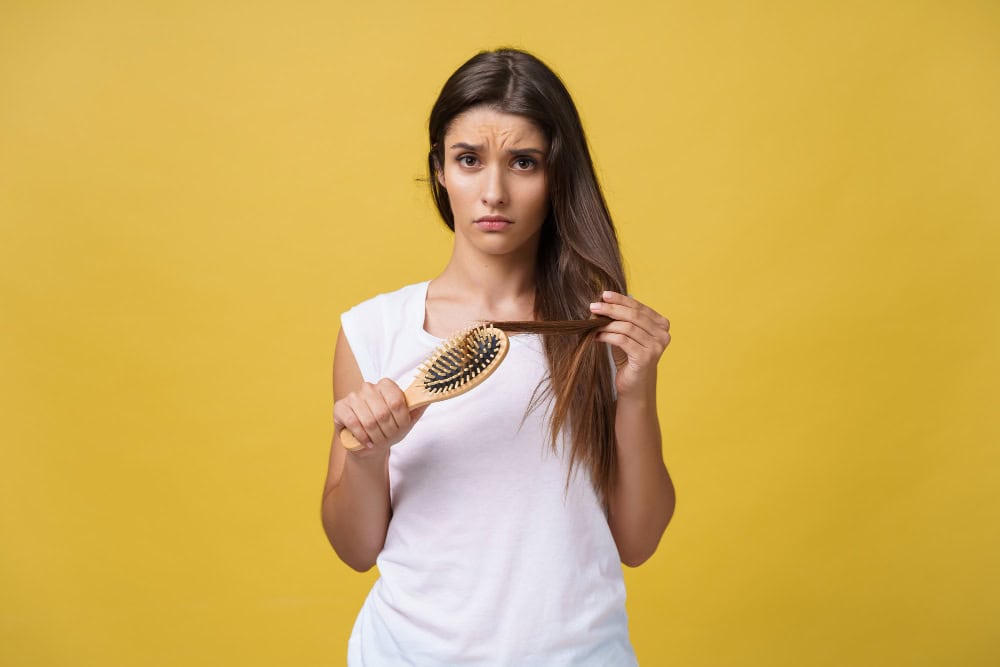
Is hairfall a problem for you? You’re not alone, as many people are looking for natural solutions that are gentle yet effective. Rice water has quickly become popular again as a DIY treatment that has been used for generations and is full of amino acids, inositol, vitamins, and antioxidants. Influencers are also loving how it strengthens hair, adds shine, and improves scalps. For every influencer, there are hundreds of years of folklore and science-based evidence. Are you interested? Let’s find out.
What Is Rice Water, And Why Has It Been Used For Generations?
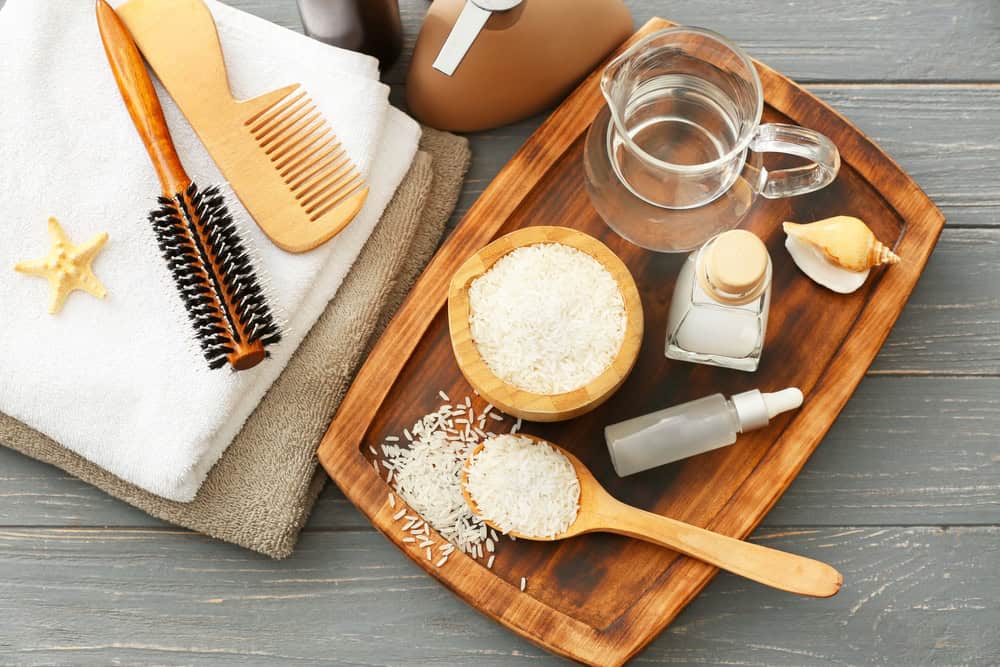
Rice water is the starchy liquid left over after soaking or rinsing rice, or from cooking rice. The use of rice water dates back to:
- Heian period Japan, where female courtiers used “Yu-Su-Ru” for their long, shiny hair.
- The Yao women of China have floor-length hair. Female Yao are said to rinse their hair in fermented rice water.
It is an excellent source of inositol (which has been shown to improve hair elasticity), good amino acids, an abundance of B & E vitamins, along with starches and minerals, and trace minerals.
What Does Research Say?
1. Strength & Elasticity
A 2010 study shows that inositol in rice water can penetrate into the hair shaft to improve elasticity and reduce friction, leading to less breakage [1].
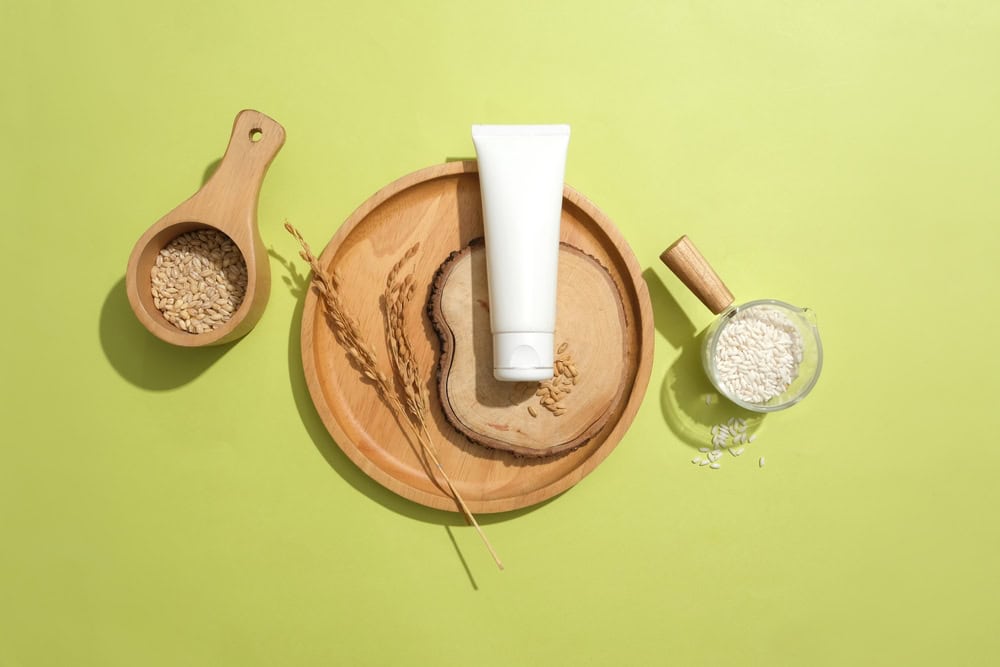
2. Growth Signal Regulation
A systematic review shows that rice bran extract helps enhance growth-phase protein levels and may inhibit hair-thinning enzymes (this is for rice bran extracts, not plain rice water) [2].

3. Fungal (Anti-Dandruff) Aid
In vitro tests showed that rice water could also inhibit Malassezia furfur (the yeast on your scalp) because of the trace zinc and selenium in rice [3].
7 Benefits You May Experience:
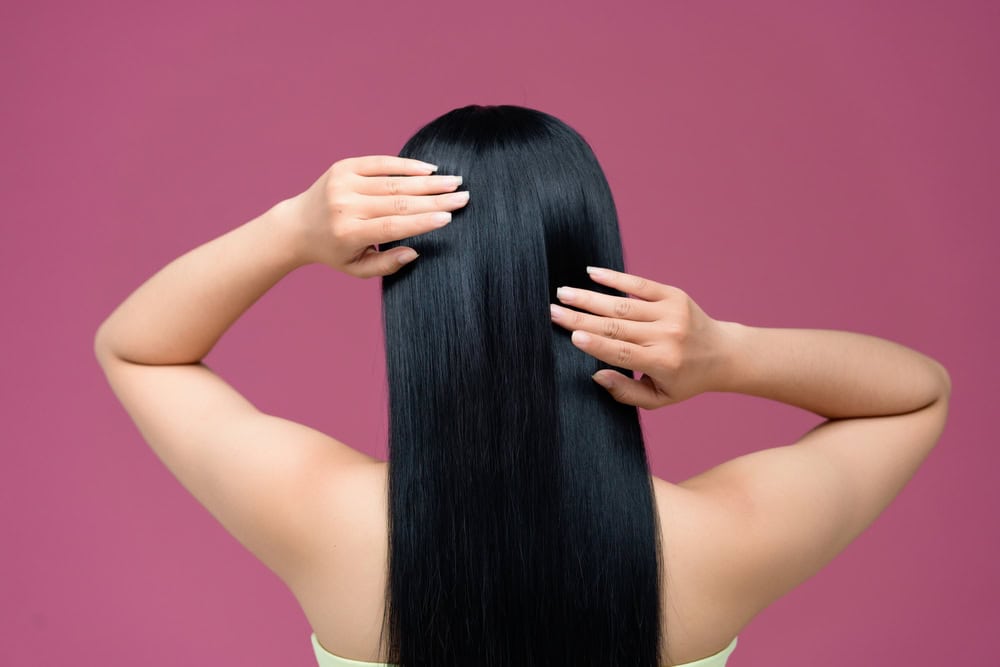
- Less breakage (due to both amino acids and inositol)
- Shinier & smoother strands (because of a protein and starch coating)
- Easier detangling (because it moistens and helps loosen hair)
- Less flaky scalp/dandruff (because of a reduction in Malassezia)
- Less swelling and shrinking damage
- Cost-effective/chemical-free (which checks the box on sustainable beauty)
- Some antioxidant and anti-inflammatory activity (may be minimal)
How to Make & Use Rice Water?

What You Need:
- ½ – 1 cup of rice (any type)
- 2 – 3 cups of clean water
- Bowl, strainer, and container to store the water
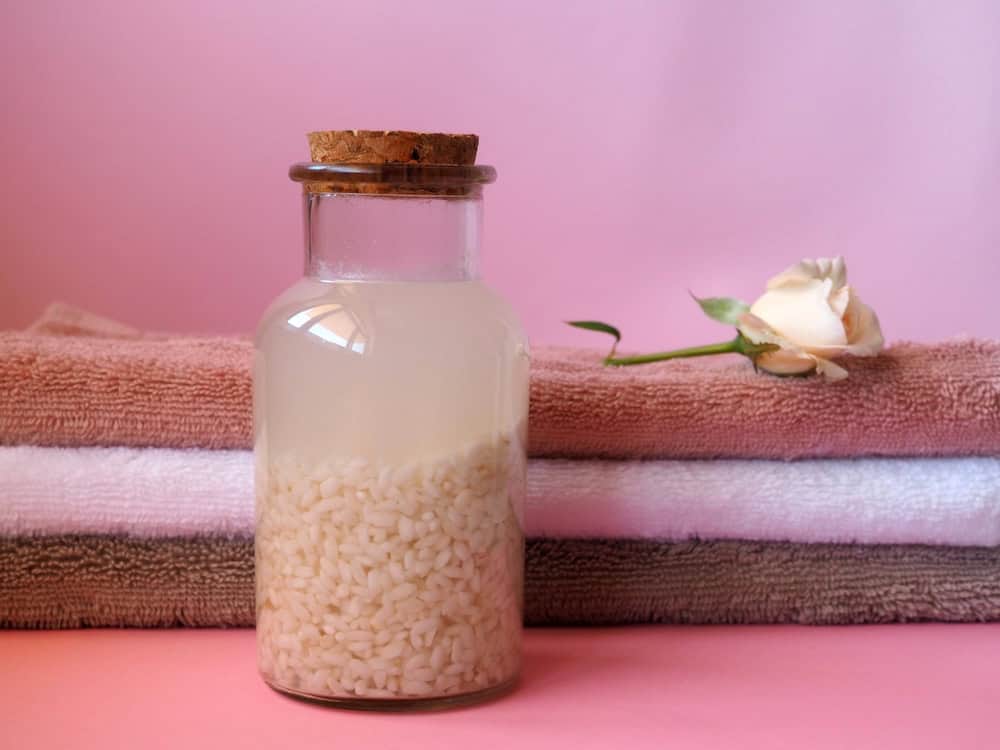
How to Prepare it:
- Soak: Rinse rice, soak in new water for 30 mins, and strain water from rice
- Boil: Cook rice in water, cool, and strain (water to be used on hair)
- Ferment: Now, soak in new water for 30 minutes, refrigerate for 1 – 2 days, and strain water from rice.

How to Use:
- First, wash your hair with shampoo, rinse it, and then dry it.
- Pour rice water onto the scalp and strands, and gently massage it into the hair.
- Then leave on for 10-20 minutes (20 max)
- Rinse off thoroughly with warm water.
- Then use conditioner or oil to add moisture.
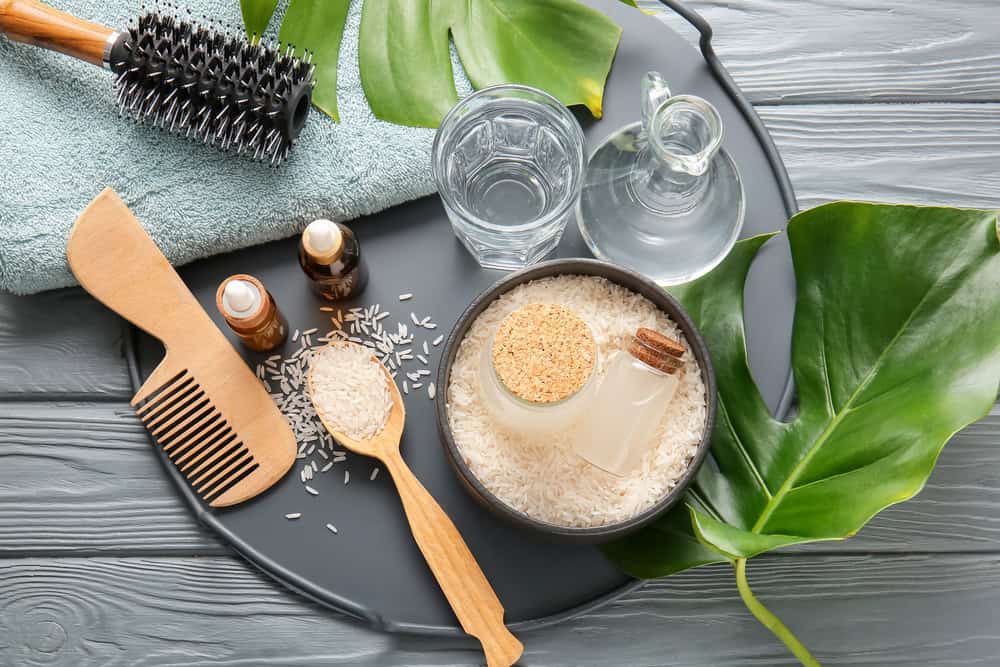
Best Frequency:
Use once every week or twice a week (1-2 times a week) as you like. Not more than this because using too often can lead to protein build-up that can cause dryness for your hair, and this is especially true for low-porosity or curly hair.
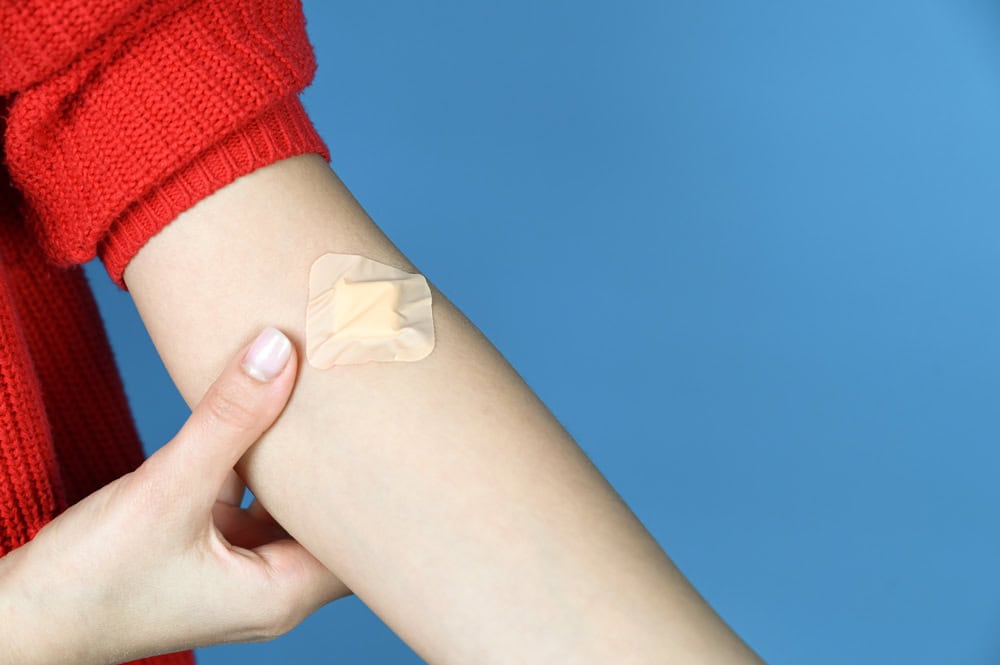
Precautions:
It is also recommended that you perform a patch test. Do not use it if you have eczema, have dermatitis, or are allergic to rice.
Final Takeaway: Are You Ready to Give It a Try?

Rice water is a relatively inexpensive and sustainable way to help strengthen your strands. It also increases shine, reduces tangling, and lessens dandruff.
Because of its high starch and inositol content, rice water can help smooth cuticles and may reduce hair breakage. While rice water is not a panacea for hereditary hair loss, it has a long history, gone viral on social media, and is something to try in your hair care routine mindfully. Just be sure to monitor your hair to see how it responds!
FAQs
How often should I apply rice water to my hair?
Use rice water once or twice a week for 10-20 minutes. Too much rice water can lead to protein buildup in hair, especially low-porosity hair and hair with tighter textures.
Should rice water be used on wet hair or dry hair?
Apply rice water to wet hair after you’ve shampooed. The starch in the rice helps to seal in moisture, which helps to reduce hair drying or frizz.
Is fermented rice water better than plain old rice water?
Fermented rice water may offer more antioxidant benefits, but it can irritate sensitive scalps, while soaking water is gentler on the scalp and works for most users.
(The article is written by Deepa Sarkar, Medical Writer, and reviewed by Monalisa Deka, Senior Health Content Editor)
Recommended Reads
5 Expert Tips to Prevent Hairfall in Monsoon
Boost Hair Growth & Reduce Hair Fall with Clinically-Tested Bontress Pro+
References
-
Dey M, Dey B, Dey A, et al. Rice Water: An Emerging Ancient Remedy for Hair Care. JETIR. 2021 Jun;8(6):177–180. Available from: https://www.jetir.org/papers/JETIR2106426.pdf
-
Meinhardt AK, Zu Siederdissen CH, Schmelzle M, et al. Rice-derived peptides modulate hair growth by enhancing cell proliferation and inhibiting apoptosis in dermal papilla cells. Biomed Res Int. 2022;2022: Article ID 35133117. doi:10.1155/2022/35133117
-
Patel A, Nayak B, Dash B. Study on rice water composition and preparation of antidandruff shampoo against Malassezia species. ResearchGate. 2023 Oct. Available from: https://www.researchgate.net/publication/375130767_Study_on_rice_water_composition_and_preparation_of_antidandruff_shampoo_against_Malassezia_species
